Looking out on an impressive public lands vista may make you feel like a king, but the argument that America’s public lands are akin to England’s “royal forests” is completely ridiculous
On June 29, Senator Mike Lee (R-Utah) addressed a conservative public policy think tank with an impassioned speech about the tyranny of the federal government and three pieces of legislation aimed at selling off and developing America’s public lands.
In this monologue, Lee equated modern-day public lands in America to feudal England’s “royal forests,” which provided game and amusement for the landed gentry while the peasants starved. In Lee’s mind, eastern elites are today’s landed gentry and the peasants are those living in states with abundant public land.
Perhaps Senator Lee should study the evolution of and philosophy behind America’s public lands system, which was created to be the exact opposite of England’s.
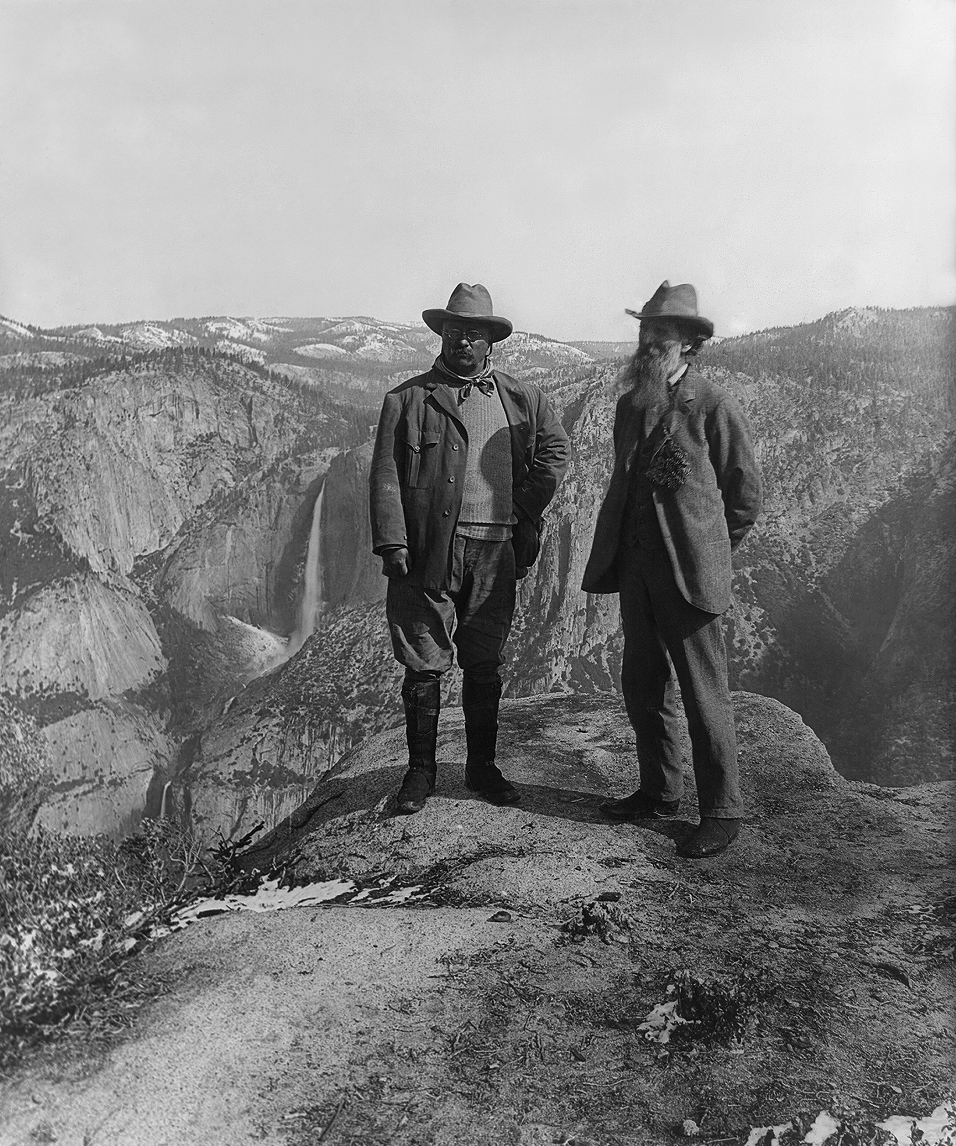
Theodore Roosevelt felt that all Americans should have the chance to prove themselves in the wild—as he had done after the death of his wife and his mother—and enjoy the resources that the forests, rivers, mountains, and prairies could provide. The North American Model of Wildlife Conservation comes from Roosevelt’s vision and continues to govern wildlife management by several key tenets, with the most fundamental being that our fish and wildlife belong to all Americans—not governments, private landowners, or corporations—and they must be managed in a way that sustains fish and wildlife populations in perpetuity.
Each citizen has an opportunity, under the law, to hunt and fish in the United States, and we have more than 600 million acres of public lands, open to everyone, to do just that. Yet, Senator Lee laments that public lands have somehow become the play areas for a select few.
The facts offer a different story.
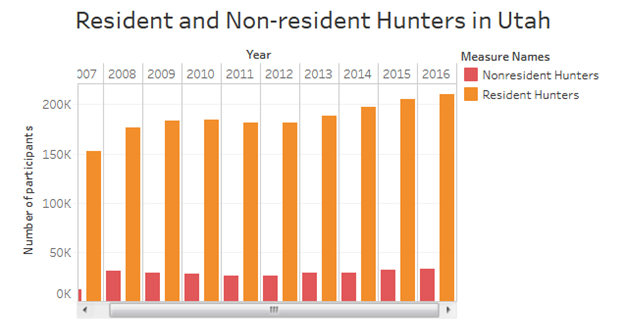
In Utah last year, more than 200,000 residents bought hunting licenses and the overwhelming majority of those people hunted on public lands in the state. Only about 30,000 non-resident hunting licenses were sold.
It hardly seems that Utahans are being kept from enjoying the public lands in Utah.
To the contrary, multiple studies across the West (here’s one) have shown that communities located close to public lands are more prosperous than those without public land access. Almost 75 percent of hunting in the West takes place on public lands. And, obviously, public lands are available to Americans for more than just hunting and fishing.
This is why our public lands support and are managed for multiple uses—from hunting, fishing, and other outdoor recreation opportunities to logging, energy development, and grazing. Some areas are managed as wilderness or monuments, while others are best suited for development.
This is what was intended by Roosevelt, Pinchot, and other conservation luminaries, and it is a system that has worked well. Yes, we can have debates about the management of certain parcels, but that debate is a luxury, one that does not occur in England or in U.S. states without extensive public lands.
The three bills that Sen. Lee outlined are all designed to transfer, sell off, and/or industrialize the nation’s public lands, and as usual, the argument is cloaked in the rhetoric of “states’ rights” and “economic opportunity.”
Will some people get rich if Utah’s public lands are developed? Absolutely. But at what cost?
Yes, we can have debates about the management of certain parcels of public land, but that debate is a luxury, one that does not occur in England or in U.S. states without extensive public lands.
If Lee were to succeed, the public lands that all Americans enjoy today for hunting, fishing, hiking, camping, off-road vehicle riding, and myriad other uses will certainly be off-limits. Those who were once able to challenge themselves, find restorative solitude, or make lifelong memories with family and friends in what Lee calls “land that is just sitting there, unused” will be greeted by industrial development or locked gates.
Senator Lee is correct that there are times when public lands in or near urban areas are best used for other purposes, such as affordable housing or schools. But federal law expressly permits those types of properties to be sold off with the proceeds benefiting conservation and access elsewhere. In fact, this is fresh in the minds of lawmakers, who reauthorized the Federal Land Transaction Facilitation Act in the omnibus spending bill in March 2018.
America’s hunters, anglers, and outdoor enthusiasts remember well when former Rep. Jason Chaffetz introduced HR 621, which would have disposed of 3.3 million acres of public lands to help balance the budget, in 2017. Our community’s outcry against this provision was so strong that Rep. Chaffetz took to Instagram dressed in camo to announce that he was withdrawing his bill—and then he withdrew from Congress.
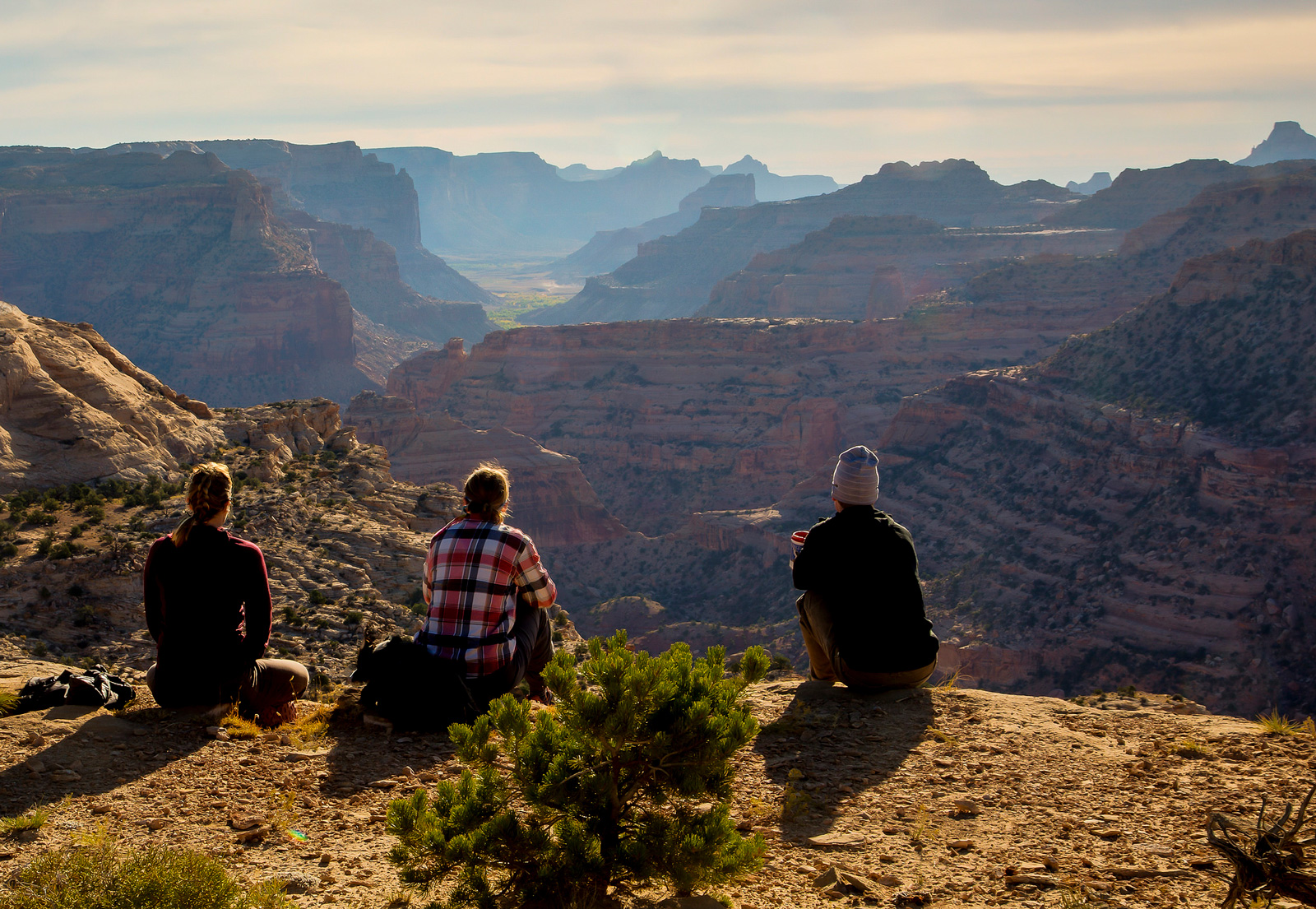
Perhaps Senator Lee needs to be reminded how much all Americans care about their public lands. He should certainly experience them firsthand and discover for himself what Theodore Roosevelt found out more than a century ago—that the privilege of access for all to wide open spaces is actually fundamental to what it is to be an American.
We are not “greedy kings” for wanting to keep our public lands public.
Send that message to your lawmakers now: Sign the petition at sportsmensaccess.org.
Then send the link to a friend who relies on public land for his or her hunting or fishing access. We have been here before and, united for public lands, we won.
Have fun picking apart Senator Lee’s full speech to the Sutherland Institute here.
Top photo by Bob Wick via flickr.

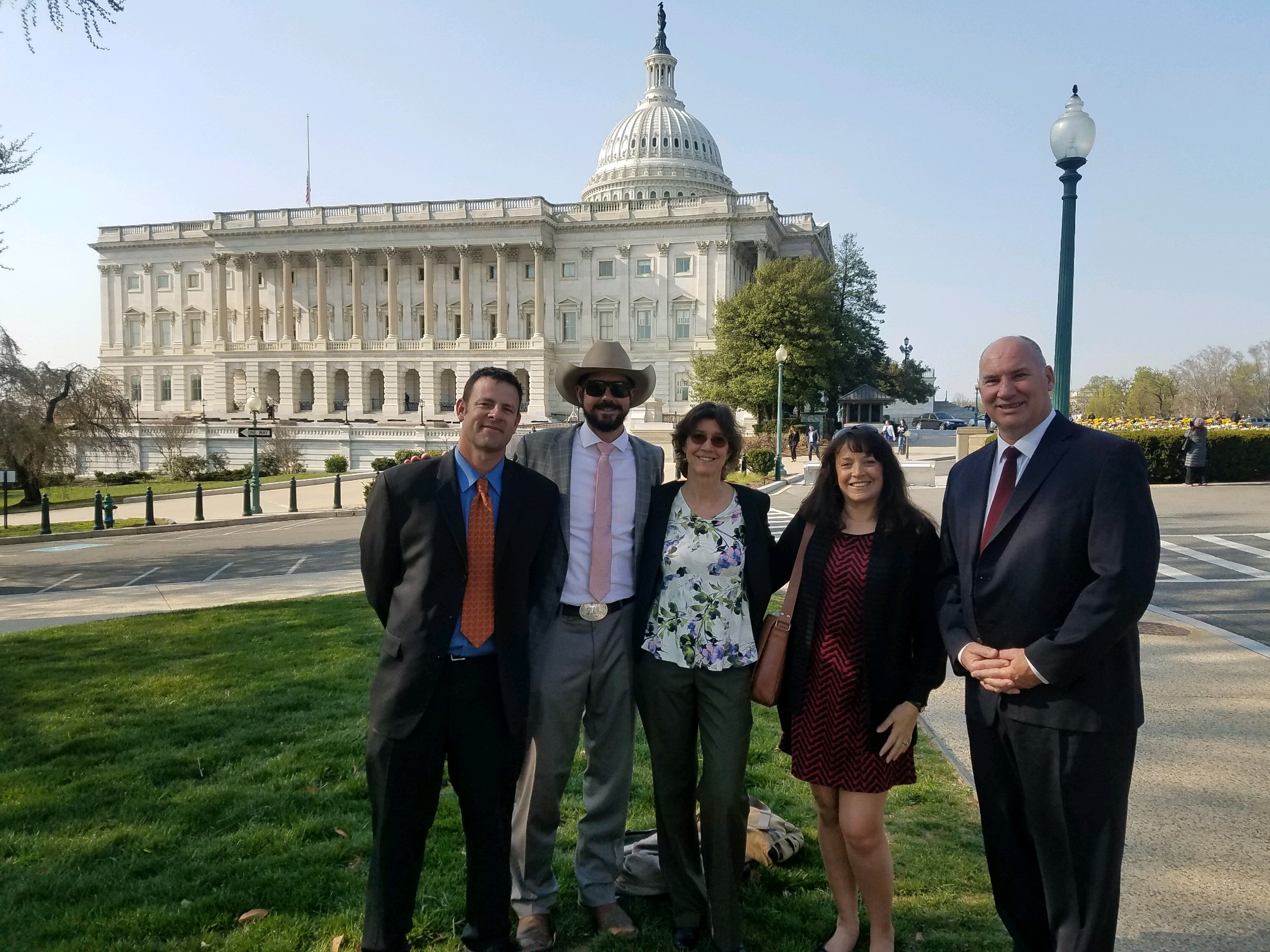
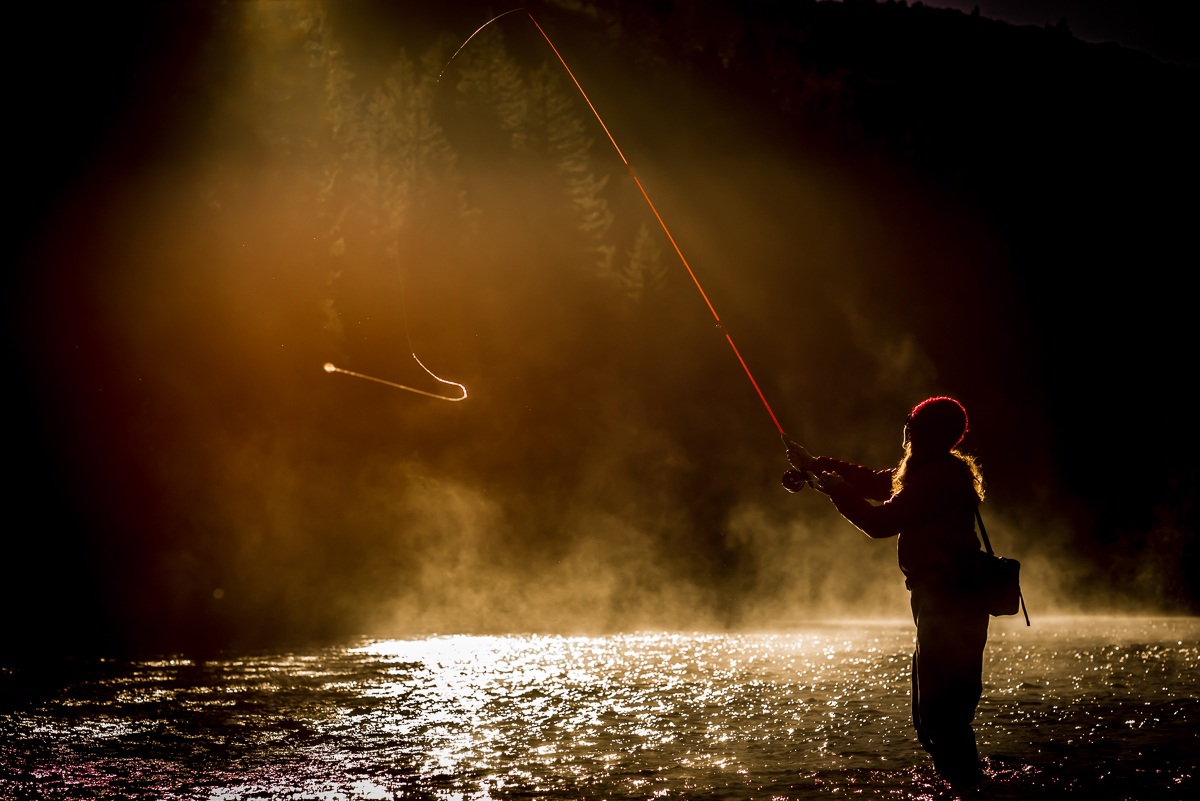
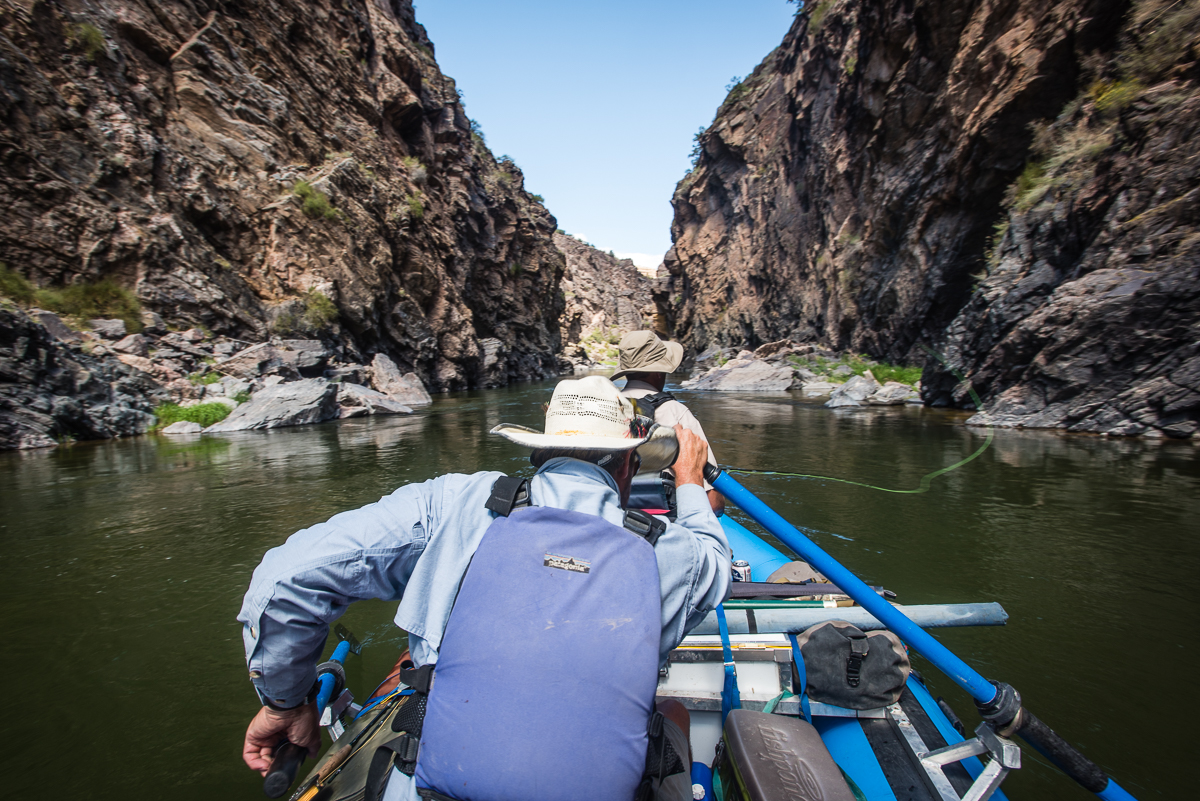
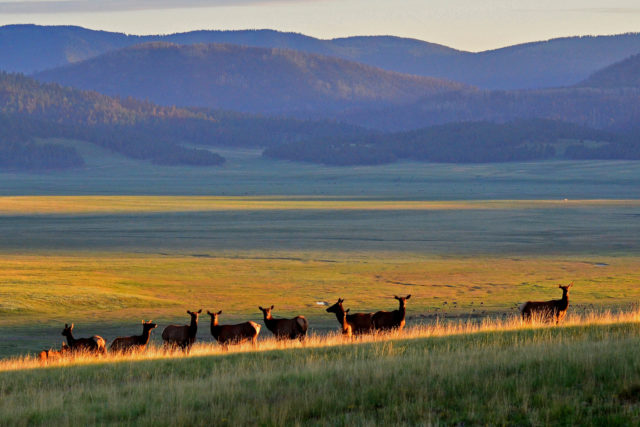




For the people
Utah constituents and recreationalists nationwide need to make an example of Senator Lee and send a message that threatening our public lands is a career ending move. Vote him out. He thinks his constituents are too dense to realize that a transfer to the states is proxy for privatization. Refuse to be represented by a man that looks down on you.
Hands off the public ground
I get so tired of people trying to do away with our public land. Anybody that tries should be voted out of office. They are thieves, and should be imprisoned.
Hands off our public lands
Stop trying to sell off the public’s land to special interests!
Sad that when some people climb up the social ladder that they forget the ordinary people who made it possible. His is a beautiful state with many opportunities for outdoor recreation of many types and for all seasons, lets keep it that way.
Keep public lands in public hands!
The attacks on
The attacks on Social Security, Medicare, law abiding colored citizens, those of different faiths and the lands set aside for our use make this a very dangerous time for our country. All of us including those elected to look out for our best interests must realize this.
So I suppose his idea of true democracy for these public lands is to turn them over to the gentle mercies of corporations to drill, dig & otherwise mutilate?? Keep our public lands for the public!
Senator Lee’s proposal is a terrible idea.
Mike Lee’s comments are nonsense. I live in Central Idaho surrounded by public lands and folks from all walks of life use these lands. The public lands provide firewood, fishing and hunting opportunities, 4 wheeling, etc..I see locals who are not privileged people as he suggest using public lands all the time. It’s time we call people like Lee out and push back..enough already!
This proposed legislation is disgraceful and an affront to anyone who cares about the management of public lands.
The Organic Act of 1872 which created Yellowstone National Park explains that the park was created “For the Benefit and Enjoyment of the People.” There’s nothing elite about that. Parks are for people, all people, and if they’re sold off to the highest bidder, we’ll be impoverished as a people and a nation.
All public land recreationalists need to band together to defeat these threats of selling off public lands. This is not a republican or democratic issue. It’s a sportman’s issue and will lead to dire consequences if allowed to proceed.
Amazing show of arrogance that he doesn’t think we the people; will know what he is really saying and doing. Hopefully the american people will wake up to all the lives being sold to us by our politicians.
I feel you are totally wrong thinking take this is for an elite group. Having these public lands is just the opposite, this is every American’s lands. It should left as is for the public to enjoy for recreation.
Keep Public Lands In Public Hands.
In a way Lee has a point, and we would do well to pay attention. In Colorado about half the elk tags go to out of staters at close to $600 a tag. That’s a considerable amount of money. Median personal income in the US is around $31K. For the half of the people earning less than median a 9 day vacation to the other side of the country to hunt elk is far beyond their means.
I’ve been hiking a lot this year, bought a senior pass for the Park. I don’t see much of the kind of people who live in my town out enjoying our public lands. In the forests, it seems to be all mountain bikers, on newly developed trails that dissect the woods into ever smaller segments, or trail runners. Everyone is now a recreationist with ever more specialized and expensive technical equipment.
The days of mom and dad tossing the kids, a tent, and some bags into the station wagon are long gone. The campground is full since last winter, booked online via a private company. Those place to pull off the road,,,., blocked off with huge boulders via the forest service to protect fragile something or others.
Public lands aren’t reserved for the Kings and the aristocracy, they are cordoned off for the 10%, the six figures and up, with a Subaru and roof rack full of toys. Oh they’ll sign petitions all right, look at Bears Ears and Escalante. More people signing petitions than will ever get sand in their Crocs. Lee knows this. He’s counting on the votes of those people flipping the burgers and cleaning the hotels who don’t have the wherewithal to enjoy our lands. They vote too, and there’s a lot more of them.
Lee is playing politics, I’m sure, but being stupid. BTW: who gets to purchase hunt permits is a function of the State Wildlife Agencies, not the land ownership. States manage the wildlife across public lands.
First, Sen. Mike Lee made an argument that was dishonest and factually incorrect. The only attention we should pay to Lee’s argument is his intent to dispose of our public lands. Yet, in no way whatsoever was Lee correct to assert that our public lands are an enclave for the “elites.”
Second, the price of non-resident elk licenses in Colorado does not support Lee’s claims. In fact, the price of non-resident hunting and fishing licenses have absolutely no connection to public lands. The price of hunting and fishing licenses are set by the state fish and game agencies and, whether it is a Colorado (a lot of public land) elk license or an Alabama (very little public land) deer tag, non-residents always pay more, usually a lot more (more than 10x), than residents for hunting and fishing licenses.
Could a person living in Texas who makes less than $31,000 per year afford a nine-day elk hunting trip in Colorado? I have no idea? However, I know that if that person could (1) get to Colorado and (2) buy a license they absolutely could hunt elk on vast expanses of their public land for no additional charge. On the flip side, could a person living in Colorado who makes less than $31,000 per year afford a nine-day whitetail hunt in Texas? I have no idea? Yet, I know that if that person could (1) get to Texas and (2) buy a license ($315 for non-resident versus $25 for a resident) they are going to have very limited opportunities. That person will have to pay an additional fee ($48) to hunt Texas’s limited public lands, if they can hunt them at all, or they will have to buy a whitetail hunt on one of Texas’s many private hunting ranches for thousands of dollars. Which hunt is more obtainable for most Americans?
Third, how does the presence of trail runners and mountain bikers support Sen. Lee’s argument? “Everyone is now a recreationist (sp) with ever more specialized and expensive technical equipment.” Like shoes? A hiker almost certainly is sporting more expensive and technical equipment than trail runners. Trail runners use shoes. Shoes! Hell, some trail runners do not even use shoes. Furthermore, many, but not all, mountain bikers do use highly specialized bikes on the trail. Yet, this is not evidence that they are “elites.” If a mountain bike is evidence of the “elite” then I must conclude that most hunters are “elite.” I would guess that if you took the average mountain biker and average hunter and compared the cost of their equipment it would be even. In addition, for every mountain biker with a $5,000 bike, there is a hunter with a $1,000 bow, $1,000 in bow accessories, $2,000 pair of binoculars, $3,000 spotting scope and tripod, $600 rangefinder, $400 boots, $1,000 in camo, etc. If you want to really identify the “elite” on the trail I would suggest skipping the trail runners and mountain bikers and focus on the people riding horses. There is not a horse owner on this planet who is not spending more money on their horses than the supposedly “elite” mountain bikers and trail runners.
Fourth, “The days of mom and dad tossing the kids, a tent, and some bags into the station wagon are long gone.” Nonsense, except for the station wagon part. Most car makers stopped making station wagons a long time ago and, apparently, the car makers who still do make station wagons are reserved for the “elite,” i.e. Subaru.
Nevertheless, the days of mom and dad tossing the kids, a tent, and some bags into the truck, SUV, or car are alive and well. In fact, they are thriving. Improved campgrounds are widely available and can be used on a first come and first served basis for a small fee, e.g. $8 per night. There is no need to reserve these spots months in advance, but the option is available in some locations. Improved campsites not your thing? There are virtually limitless opportunities for dispersed camping on the millions of acres of Forest Service and BLM lands in the west. Will there be some places blocked off? Yes, unfortunately sometimes the few ruin it for the many. Not every meadow needs multiple roads and campsites. Sometimes animals need their space. Yet, I would challenge those who think that improved and dispersed camping is impossible to come on down to Ol’ Utah’s neck of the woods. Load up your non-elite trucks, SUVs, or cars with the kids, a tent, and some bags and within an hour of a major metropolitan area you can camp in your choice dozens of improved campgrounds or hundreds of dispersed campsites.
Finally, “Public lands aren’t reserved for the Kings and the aristocracy, they are cordoned off for the 10%, the six figures and up, with a Subaru and roof rack full of toys.” Again, nonsense. Expect this statement is nonsense without any truth or facts. It is just fabricated hyperbole to pit American’s against each other. Public lands belong to every American, regardless of income or net worth. They are open to everyone and they are used by Americans of all backgrounds and means.
What about the fast food or hospitality workers? Do you believe they will benefit from Sen. Lee’s plan? How? Right now these lands are available to them. They camp, fish, hunt, explore, picnic, etc. on these lands, and they do so at little to no cost. There are no “elites” on our public lands. Who is elite in the deserts of the Southwest or the wilderness of the Rockies? On our public lands every American is the king of a kingdom we all share.
This will not be true under Sen. Lee’s plan, which will only serve to widen the wealth gap in American and make us more like Europe than America. The lands we now all share will become the enclave of the few, the elite. The elites will drive their Subarus through the gates and then close the gates, to all.
So full of false generalizations. Finding a campsite just requires some advance planning or having more public lands available for recreation. So more private ownership would give us more opportunities. Tell us how.
Leave our public lands only.
Sounds to me like another politician wantn to be seen and heard, talking out his exhaust, not having any knowledge about what he is talking about.
WHY DON’T THESE 100% PARTY LEGISLATORS ASK THE PEOPLE WHAT THEY WANT DONE TO THEIR PUBLIC LANDS, YES PUBLIC LANDS THAT MEANS “PEOPLE LANDS”. WHY DO THEY KEEP TRYING TO TRADE, SELL, GIVE OUR PUBLIC LANDS AWAY WITHOUT ASKING THE PEOPLE WHO OWN THESE LANDS?
It is our birthright to have access to public lands. We as all American own these public lands. We should be protecting them and continuing the legacy for all future generations. Please continue to protect our most precious resource which are public lands for all Americans.
Don’t you have something better to do then to destory our country and our land?
NO to this ill-intentioned effort to plunder America’s treasure.
This land belongs to all the people not
This land belongs to all the people of this country.
I oppose the development of public lands. These areas were set aside for wildlife and humans to enjoy as pristine natural habitats and they need to remain as such. Hunting is a privilege that many Americans enjoy and pay dearly for so our second amendment must be protected along with these lands. We have the technology to develop alternative means of power so the use of these lands for oil exploration is beyond abhorrent, we must do the right thing and seek out these new methods of power and leave the oil remaining underground in these public land areas. Thank you for your time.
I believe Sam has a point, I’d love to wander the west and hunt and fish, but lost my very good paying job ,to a billionaire who ripped the business apart and bankrupted it.after a 100 year existence. I at one time would save and make a trip somewhere, every other year. I went and hunted moose in Alaska twice, on the cheap self guided, the same in South Dakota, but if you notice the states with the tree hugger bunch creaping their way into the DNR,s they are pricing, every type of license or tag through the roof, the regular average Joe cannot afford, the required guides, or anything else. I’d love to hunt and fish, the BLM,s but its out my league,its like pro sports. A rich mans game.
The cost of tags is a state issue, not a national public lands issue. It may; however, offer a brief insight into what state control of land would look like.
Take a look at Texas, a huge state with a lot of open spaces but very little public lands. If you want to hunt big game in Texas, more than likely you have to do so on private property and pay the land owner a big fee for the opportunity. A far cry from a hunting experience in Utah or Idaho where we have lots of public lands and plenty of places to hunt! And we want these lands to remain in public ownership. Let’s vote the politicians who are pushing for a sell-off of public lands out of office!
I think a lot of the land the federal gov. Has taken should be returned to each state they took it from. Let the states decide what the land should be private or public. The people of these states should have a say in what is done with their land. Most states lose tax dollars with how the land is used.
Dear Kenneth Himes,
The states have never had land taken. Approximateley 1.6 billion acres was federal lands after the Lousiana Purchase, Gadsen Purchase, the Mexican War, and Sewards Folly (the purchase of Alaska from Russia). Since the time of Thomas Jefferson(our second president) the federal government basically gave away 1 billion of those 1.6 billion acres that belonged to all Americans. They gave it to the states to be held in trust and typically to fund schools. They where given 2 square miles of every 36 square miles (a township). A lot of states sold it for a quick buck. Nevada sold over 98% of it. the federal government also gave much of it to the railroads, military, the land barons and filthy rich.etc. the states, will dump it for a quick buck and leave us holding an empty bag. I worked for a western state for over 30 years in natural resource management. The state couldn’t manage a good sized outhouse properly. Get real!
Let me say this; I live in the middle of public lands (Blm, FS) in NM, close to Colo., am a retired power plant worker on fixed income. I use public lands EVERY DAY! It’s not the big elk or deer hunt, though I run into a lot of out-of-staters here for that (and they appear to have money when they come every year) but some are one and doners and when I talk with them, it’s a big thrill to be able to tent and hike the public woods searching for archery elk and deer. For me, it’s the opportunity to run, hike, bike, walk the dog, fish, bird, find solitude, grouse & turkey hunt, mushroom hunt, target practice, enjoy the wildlife, canoe, kayak, camp, ID plants and wildflowers, enjoy the geology – occasionally draw a tag for deer or elk – no biggie there. In other words, its why I’m here. Mike Lee makes a lot of noise and, unfortunately, he has his followers here. You know, the ones that loaded up on guns and ammo when Obama was Pres. – and also unfortunately, the ones that take a primitive campground and turn it into a shooting grounds for their above purchases, make it dangerous and ruin camping for others close by. Mike Lee please disappear from public service.
STOP TRYING TO FILL YOUR POCKETS Like A COMON CROOK AT OUR EXPENSE !!!!…..
Apparently, Senator Lee, believes there are many others who think like he does or he would not have written this speech. Pure and simple, vote them all out!
I am an avid hunter, angler, outdoors enthusiast, and public lands recreationist. America’s public lands are not only for hunters and anglers, but all Americans have the right to use them. Whether you like to hunt and fish, hike and rock climb, or just have the occasional hike over the 4th of July, those public lands are all of ours. No one should have the right to sell OUR lands; and we need to make sure that we, as American’s and public land users, voice that.
We can use money to protect public lands or we can use public lands to protect money. Clearly politicians like Lee and Chaffetz are in service to the latter. Those of us in service to the former must redouble our efforts to contribute to wildlife conservation, hunting, fishing, and outdoor organizations that are resisting corporate land grabs. As a Conservative I believe in Conservation. A pity Chaffetz and Lee have abandoned their principles.
There is absolutely no legitimate reason for this kind of privatization of our public lands to occur, and if it ever did, it would be the crushing of freedom and enjoyment for the overwhelming majority of americans. Mike Lee, and anyone who might be in league with him on this usurping of the public good should be publicly shamed and ostracized for this kind of thinking. What kind of leadership is it that we have in Washington that would even think do this? It may be extreme to say this, but we the people need to send the government, both local, statewide, and national a message. We need to vote every incumbent out of office. They need to understand that we will not let those who purport themselves to be our representatives even think of doing this to us. Mike Lee, you are wrong on this. Drop this idea like a bad habit immediately.
I live in Boise, ID and as soon as the weather warms up there is a constant flow of traffic out of tow to go out and enjoy the vast wilderness around us. Keep public lands public! Time to start educating our youth on the biology and economic benefits of having public lands just outside our city.
I apologize for a second comment, but feel a need to add to my initial brief NO to Mike Lee. My first experience with public lands was as a child going “ramp digging” with parents in the national forest near Elkins, WV. I caught my first trout, a native brook, killed my first buck, first turkey, and first spring turkey gobbler on national forest land. At age 81 I have had the privilege of enjoying OUR public lands for hunting, fishing, camping with family and just knowing they are there. Three days in the past week I fished for trout on public land. OUR public lands are one of America’s greatest treasurers. We must not let the Mike Lee’s of the world lead an effort to rob us of those lands. We must fight the enemies of ignorance and apathy which exist even among some outdoors people. I think about three of the first 40 posts fall into that category. One of those three is a boyhood friend with whom I hunted, fished and camped on national forest land when we were young. Our families did not own land. I hope he will eventually gain understanding. For the 34 years I worked in Washington DC, the national forests along the VA-WV border were go-to locations for turkey hunting. Shenandoah Nat’l Park held numerous brook trout streams. Now retired to a small town in my native WV, I know many who travel to public lands in a number of states to hunt elk, deer, and turkey. These are not wealthy people, but tradesmen, school teachers and other working class who save for the opportunity to hunt the public land s in other states. Without the public lands these opportunities would not exist. I’ve fished for many years on public land streams in a total of six states, hunted on public lands in 5 states, all without guide or outfitter. When our boys were young we pulled the tent camper to many public land locations. I’m not wealthy, but I sure value OUR public lands. Mike Lee and his kind are dangerously wrong, and reckless with what they proclaim.Those who would sell, develop, or transfer federal lands to the states are dangerously wrong. I encourage every outdoors person to join at least one conservation organization. By the way, I consider my self conservative, but not crazy. Conservation must be an ongoing objective.
Lee is serving the wealthy who control him and use him to get them an in to further exploit our natural resources and take away our access. Our public lands are not for sale to the wealthy.
Mr. Lee, like many politicians, does not understand what it means to represent his constituents. He represents HIS interests, which are money and power. All voters in Utah need to kick him to the curb and elect someone that understands the values of our state.
Public lands are elitist? What a ridiculous argument. Has he actually been out in them recently? Everybody is out there using our greatest national heritage for whatever their interest is. Funny how a politician like Senator Lee thinks that saying the magic word “elite” hides the truth that he’s trying to turn our public lands over to the elites who are funding him to push this legislation. There are plenty of conservative elites and the beauty of our public lands is that it’s a common ground for all American to enjoy. We desperately need common ground right now.
I am a 67 years old California native and lifetime hunter, fisherman, and dirt biker. I have spent a lifetime on public lands doing what I love and my children and their children have followed, Last year I drew a deer tag for the Eastern Sierras. For three straight weekends I hunted a zone that was 95% Forest Service, BLM. or DWP land. No fences or gates and unlimited places to camp. This was on thousands of acres of pristine wilderness. My hunting licence was $48.34 and my deer tag was $31.06, use of land and camping $0. My son and I hunted for a total of 8 days. This is how a vast majority of hard working people like myself rely on our public lands and feel blessed every day to have them. I am far from the elite that Senator Lee is alluding to. Public lands are the possession and right of all Americans rich or poor. Lets fight to keep them that way.